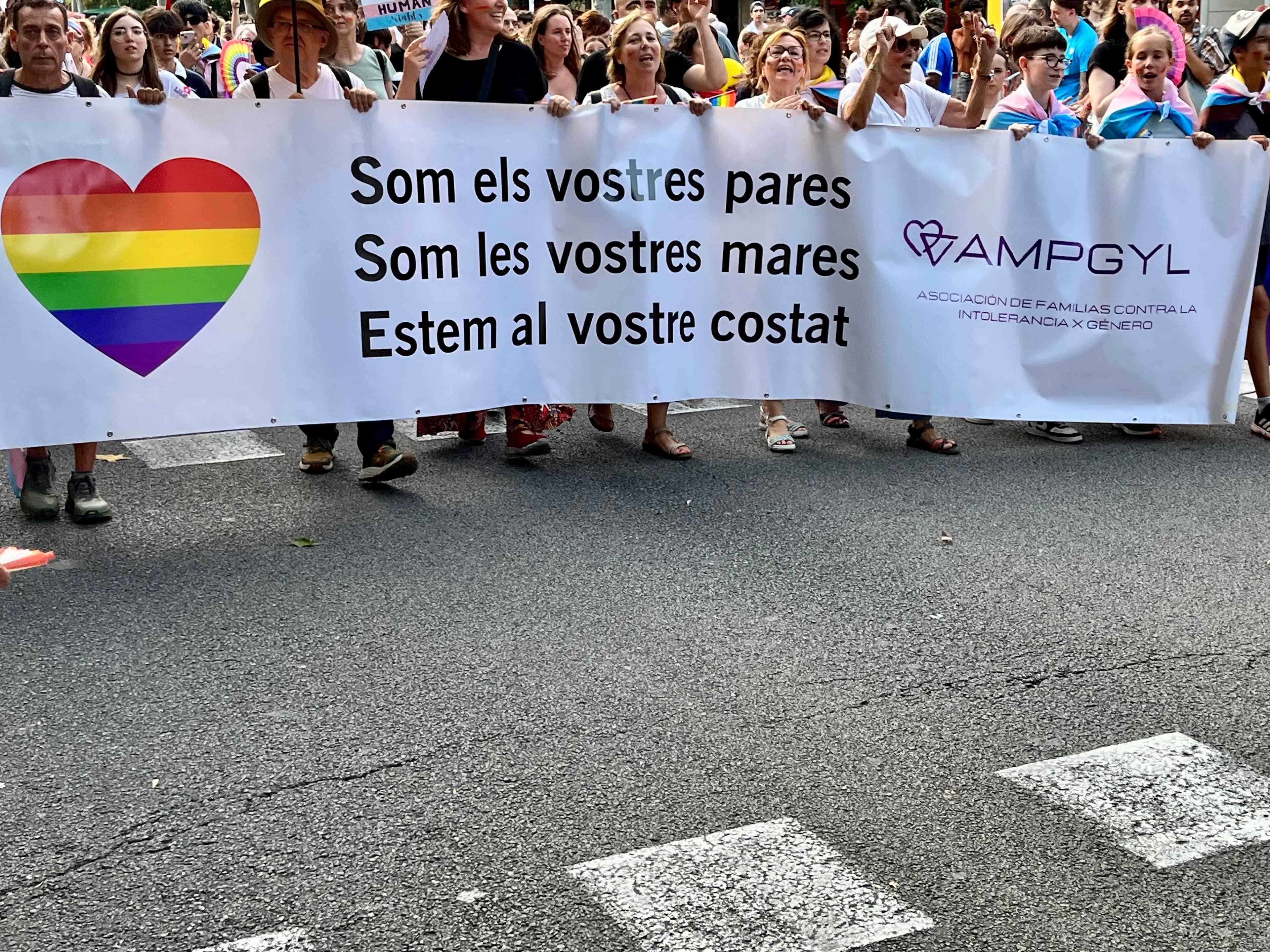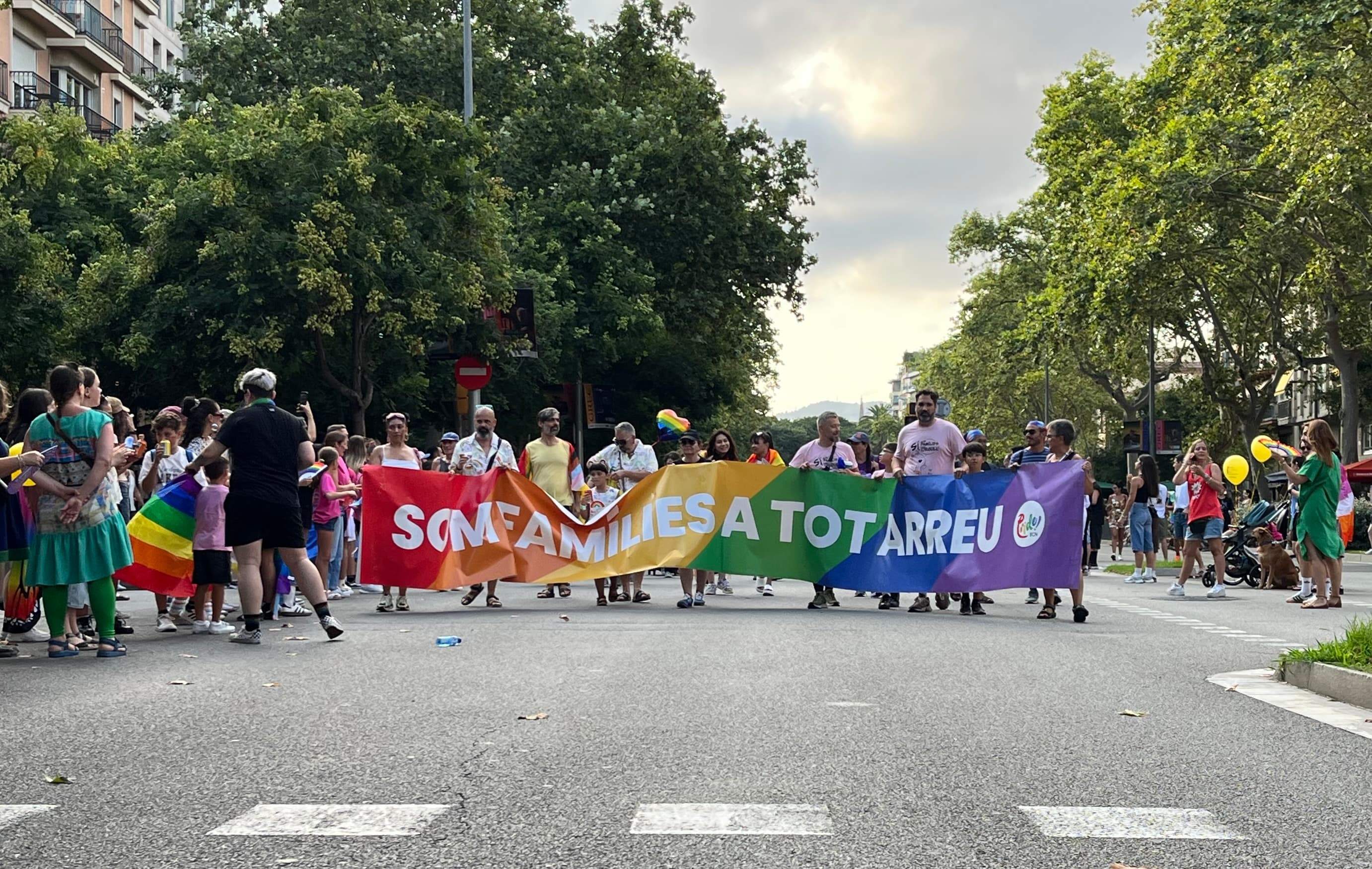A friend of mine once asked: why does Pride last a whole month, while most other commemorations take just a day or two?
I didn’t answer right away. I paused. Thought about it.
What is it about this month that matters so much? Why does it still feel urgent?
For some, Pride is an excuse to party. For others, it’s a PR opportunity—to align a brand with LGBTQ+ rights, to chase visibility. And sure, against the backdrop of ongoing discrimination, some voices now complain about “reverse discrimination,” citing workplace bias against heterosexual people. Has Pride lost its meaning?
I’ve celebrated Pride Month for six years in Barcelona—one of the world’s LGBTQ+ capitals. Here, Pride isn’t just an annual event. It’s a constant undercurrent. Political will. Municipal support. Programs that aim to protect vulnerable communities. In June, Mayor Jaume Collboni—a proudly out gay man—traveled to Budapest to support the local Pride, banned by Hungary’s president. That march became one of the largest acts of protest in the country’s history.
So why a month, not a day?
Maybe because each of us is vulnerable in some way. Because we’ve all learned to hide what makes us different. To shrink our truths. To pass.
Pride isn’t about standing out. It’s about finally refusing to disappear.
And maybe—just maybe—one day isn’t enough for that.
This year, police estimated 150,000 people marched through Barcelona on July 19. Organizers say the number was closer to 250,000.
For a few hours, the city transformed into a carnival—dancing, glitter, water, joy. This year’s official motto — “LGTBQIA+ Culture: Universal Culture” — appeared on signs, stages, and the sides of carrozas. But woven through the music and cheers were signs: about love, about memory, about dignity.
One banner led a group of parents:
“We are your fathers. We are your mothers. We are here for you.”
Such a simple message—and yet it stopped me. How much does it mean, especially for a young person, to feel unconditional love when first stepping into the light?

“We are your mothers. We are your fathers. We are here for you.” — a message of unconditional love at Barcelona Pride 2025.
Next came same-sex families with children. Vulnerable—even here. In many countries, their very existence is illegal. People flee, just to protect their unions.
This year marks 20 years since the legalization of same-sex marriage in Spain — one of the first countries in the world to recognize equality not just in love, but in law. And yet, two decades later, the families walking through the streets of Barcelona still carry a sense of vulnerability. Pride is their breath of safety.

Barcelona, Pride, 2025.
150,000—maybe 250,000—marching through Barcelona, riding carrozas: trucks turned into glittering platforms. For some, it was nothing short of freedom.
My friend Vitalik wore a new outfit—bought from a drag artist still living in Russia. The outfit had crossed borders, continents. Bold. Beautiful. Daring.
In Russia, drag can now get you charged with extremism. Costumes once dazzling on Moscow stages are sold off for scraps, scattered across the world.
Has a month been enough—for Russia and others—to learn that drag is not extremism?
WHERE DOES THE CELEBRATION END—AND POLITICS BEGIN?
Barcelona Pride—or Orgull, in Catalan—spanned some 60 events this year: concerts, masterclasses, film screenings, performances, exhibitions. Visibly rainbow-branded, yes—but beneath it all: a fight. A claim to identity, and to a life that’s livable. A fight that cannot happen without political will. Most events were publicly funded. Without City Hall’s support, many might not have happened.
This year, Spain’s Equality Minister Ana Redondo marched alongside Mayor Collboni. That same day, she announced Spain’s first-ever national strategies for LGBTQ+ and trans inclusion. These policies will integrate queer rights into every ministry.
Spain is moving forward. But not without resistance.
While rainbow arches float above Barcelona, storm clouds gather elsewhere. In February, seven autonomous communities in Spain began reviewing proposals to dismantle LGBTQ+ and trans protections—most initiated by the far-right Vox party.
In places like Murcia and Madrid, conservative governments proposed repealing laws they once championed. Others sought to freeze funding, ban trans women from sports, or use vague appeals to “protect children” from so-called “gender ideology.”
Meanwhile, the streets are dancing. And brands are everywhere. Vueling. Estrella Damm. Hotel chains. The TMB transit system.
To be fair, these are mostly local companies—genuinely supportive. But even through the shimmer, other voices rise.
I see a group with a homemade sign:
“Trabajo sexual — tema del Pride 2026.” (Sex work — theme for Pride 2026).
They don’t have a sponsor. Or a stage. But they have a voice.

A handmade sign at Barcelona Pride 2025 calls for next year’s theme to center sex workers: “Trabajo sexual — tema del Pride 2026.”
In Spain, sex work exists in a legal grey zone. Most major parties—from Vox to the PSOE—support criminalization. But thousands of women, migrants, trans people, activists—refuse to vanish.
There are over 114,000 women in Spain currently engaged in sex work, according to the Equality Ministry. The vast majority are migrants. Most have no access to pensions, healthcare, or legal protections.
They are asking:
To recognize sex work as work.
To repeal punitive laws like Ley Mordaza, which fines them simply for existing.
To stop conflating them with trafficking. To let them work safely—without fear, without invisibility.
In response, Vox offers deportations, moral panic, and even fewer rights. These are the people Pride was made for.
Not for confetti. Not for the telecom-sponsored selfie booth.
But for the bodies denied the right to be bodies.
For the desires that some want erased.
For the lives still labeled “unacceptable.”
So—who runs Pride today? Where is the line—between celebration and illusion, between joy and protest?
Are we here because we’re free?
Or to say, clearly, that we are not yet free?
My friend Oriol, a sociologist and longtime activist, watches the march flow past us—two and a half hours in, with no end in sight. He remembers when just a few hundred people showed up. When Pride meant justifying your existence. Explaining yourself. Bracing for rejection.
Now, families line the sidewalks. Clapping. Waving. Hugging.
And still—it’s not just a carnival. It’s a march. With roots.
On June 28, we commemorate the Stonewall Riots of 1969—when queer people first collectively said no to police raids and claimed the streets. But Barcelona has its own story of resistance.
In the summer of 1977, two years after Franco’s death, the first-ever LGBTQ+ demonstration in Spain took place here, on La Rambla. Organized by the Catalan Gay Liberation Front (FAGC), it carried a symbol: an inverted triangle (from Nazi concentration camps), Catalan stripes (for the land), and a raised fist (for working-class solidarity).
That march was illegal. Police beat demonstrators with batons and fired rubber bullets. Trans women shielded others—after being told they couldn’t lead the parade.

Manifestación gay, Barcelona, 1977 — one of the earliest known images of LGBTQ+ protest in Spain. Photo by Colita (Isabel Steva Hernández), from the series Manifestaciones. Museo Reina Sofía, Madrid.
Today, the streets glow. But the chants are still the same: Recognition. Safety. Voice.
I listen to Oriol. And I marvel: that even now—despite commercialization, inner fractures, and new threats—Barcelona remains alive. Defiant. Ahead of the curve.
Here, Pride isn’t just a party.
It’s memory. And promise.
And something else—ambition.
Barcelona has launched its candidacy to host WorldPride 2030. This year, a Catalan delegation traveled to Washington, D.C.—the host city for WorldPride 2025—to make its case.
The bid is led by Pride Barcelona and the Cámara LGTBIQ+ de Catalunya, backed by City Hall, the Generalitat’s Department of Equality and Feminism, and Spain’s Ministry of Equality.
Their aim: to make Barcelona the global capital of queer rights, at a time when backlash is rising around the world.
WorldPride is more than a parade. It’s a summit. A political forum. A global voice. Since 2000, it’s been held in Rome, London, New York, Madrid, Copenhagen, Sydney. In 2026, it goes to Amsterdam. In 2028, Cape Town.
And if all goes well—in 2030, it will come here.
To a city that remembers. That resists. That dances. That dreams.
To a city where Pride is not a day.
Not even a month.
It’s a spirit.
